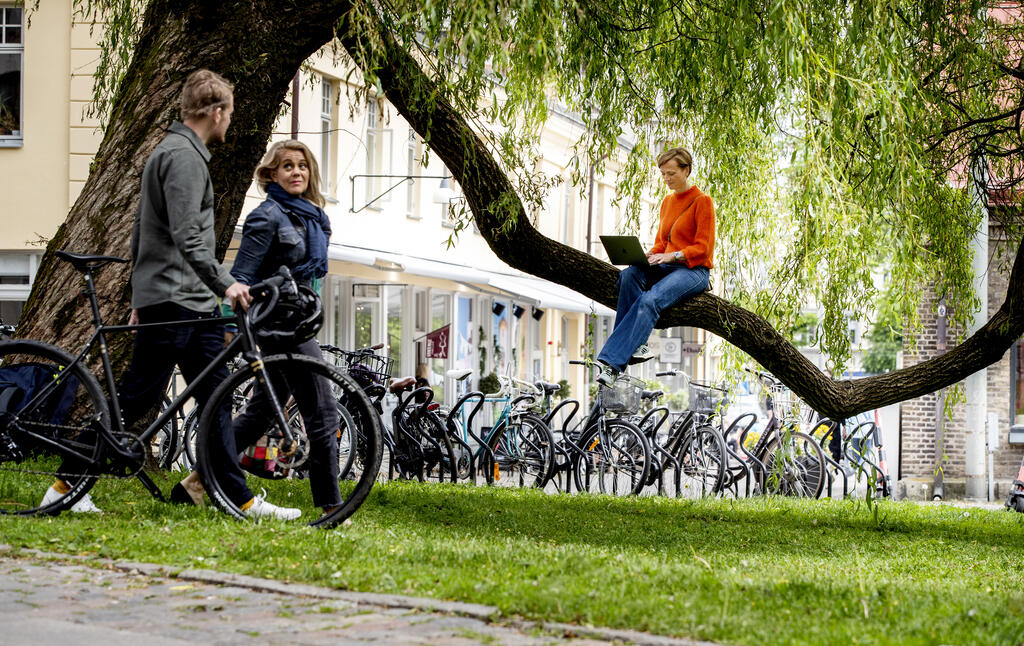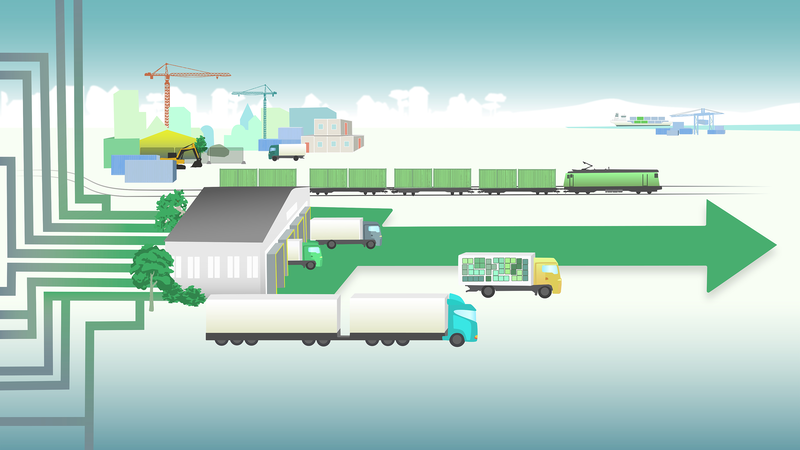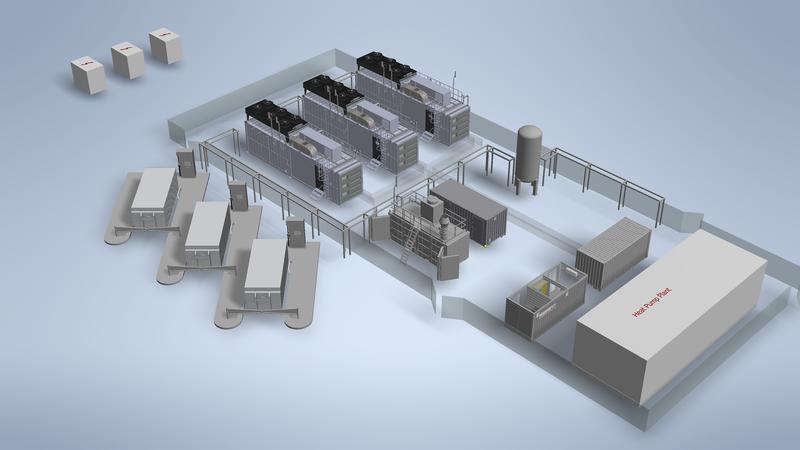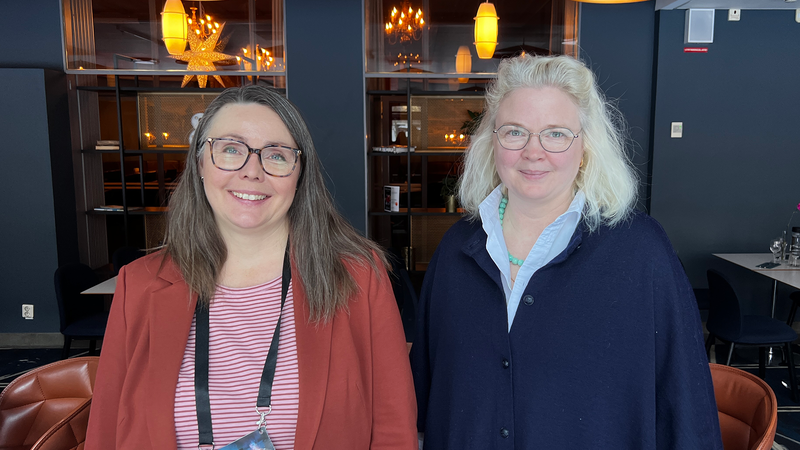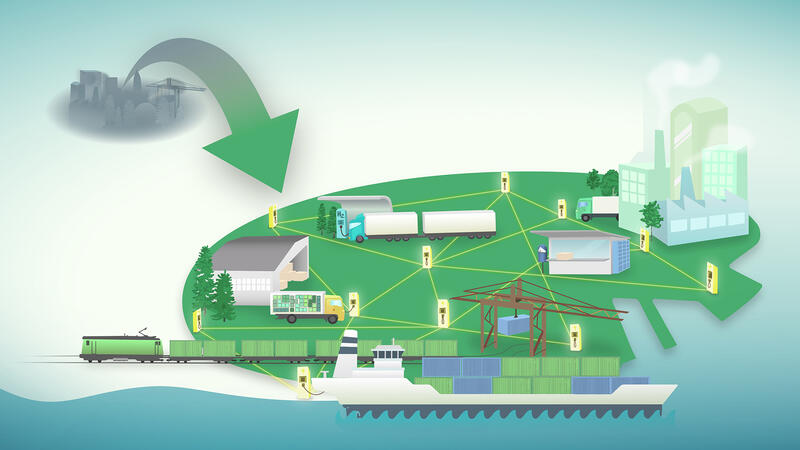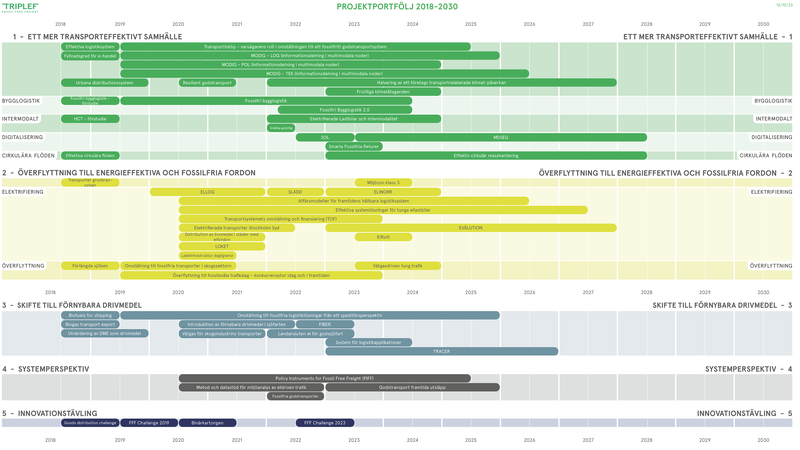New licentiate degree on how to measure and improve construction transport efficiency
Farah Naz is one of thirteen Ph.D. students within Triple F who recently defended her licentiate degree. In her dissertation, she described how to measure and improve construction transport efficiency (CTE) by implementing logistics management from the perspective of the main contractor and the transporter. In this article, we share some of the results Farah discovered in her research.
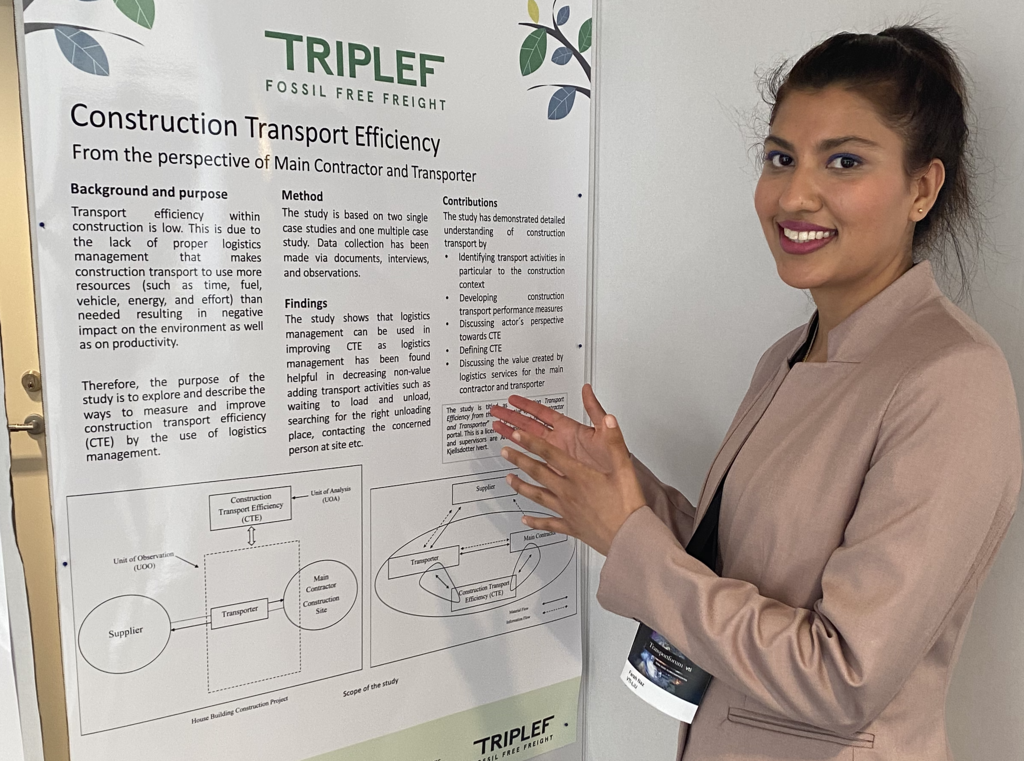
Transport efficiency within construction is low. One reason behind the lack of efficiency within the construction transport is the lack of proper logistics management which makes construction transport to use more resources (such as time, fuel, vehicle, energy, and effort) than needed which in turn has negative impact on the environment as well as on the productivity. Construction transport has not been given much focus in prior research because construction transport gets camouflaged in the purchasing price and therefore remains unnoticed as a distinct activity. This highlights the need to better understand construction transport to improve its efficiency. Therefore, the purpose of this thesis is “to explore and describe how to measure and improve construction transport efficiency (CTE) by the implementation of logistics management from the perspective of the main contractor and the transporter”. In terms of logistics management, construction logistics setups (CLS) and performance measurements are studied.
Farah addresses the following research questions:
RQ1: How to define and measure construction transport efficiency?
RQ2: How can logistics management be used in improving construction transport efficiency?
Q. What methods have you used?
Case study research has been used as there is a need to develop an in-depth and detailed understanding of construction transports. The thesis is based on two single case studies and one multiple case study. Data collection has been made via documents, interviews, and observations.
Q. Which research literature/theories have you related to /leaned towards?
The general understanding of logistics and transport and how they are related to each other have been developed via the literature. Furthermore, different views on transport efficiency and value creation through logistics is described. Although it has not been mentioned explicitly, however the thesis leans towards the theory of value creation.
Q. What important results does your research show?
The research defines construction transport efficiency and identifies performance measurements (such as on-time delivery, delivery lead time, no. of late deliveries, transport per day, vehicle turnaround time, CO2 emissions per trip, fill rate etc.) within construction transport efficiency. The research enhances the understanding of lack of efficiency that exists within construction transports by identifying value adding, non-value adding, and necessary but non-value adding activities within construction transports. Furthermore, research shows that logistics management can be used in improving construction transport efficiency as logistics management has been found helpful in decreasing non-value adding transport activities such as waiting time for loading and un-loading due to clashes between inbound and outbound deliveries, time taken in searching the right unloading space at construction site and the time spent on contacting the concerned person at site for finding the right unloading space, putting on and putting off the net on a filled waste container by the driver, un-necessary vehicle movements etc.
It has also been found that transport efficiency is perceived differently by different actors such as the main contractor perceives transport efficiency as on-site productivity, whereas the transporter perceives transport efficiency as delivery efficiency.
Q. What is the next step?
This thesis has an off-site focus as far as construction transport efficiency is concerned, a further study can be conducted with an on-site focus in connection with the construction transport efficiency. This will deepen the understanding regarding on-site construction transport flow. Moreover, this thesis has been studied from the perspective of only two actors that is main contractor and transporter. However, it would be interesting to study construction transport efficiency from a triadic perspective that is to include supplier perspective as well. This will help in understanding the whole construction transport flow instead of just studying the last leg of it. Furthermore, it has been noticed that the procurement and purchasing also holds the potential to improve construction transport efficiency. By taking procurement and purchasing approach, more focus can be given to route optimization, fleet management and so on. Therefore, this can be considered important for further research.
Please follow the link for the complete licentiate thesis: http://liu.diva-portal.org/smash/record.jsf?pid=diva2%3A1648329&dswid=-1931


